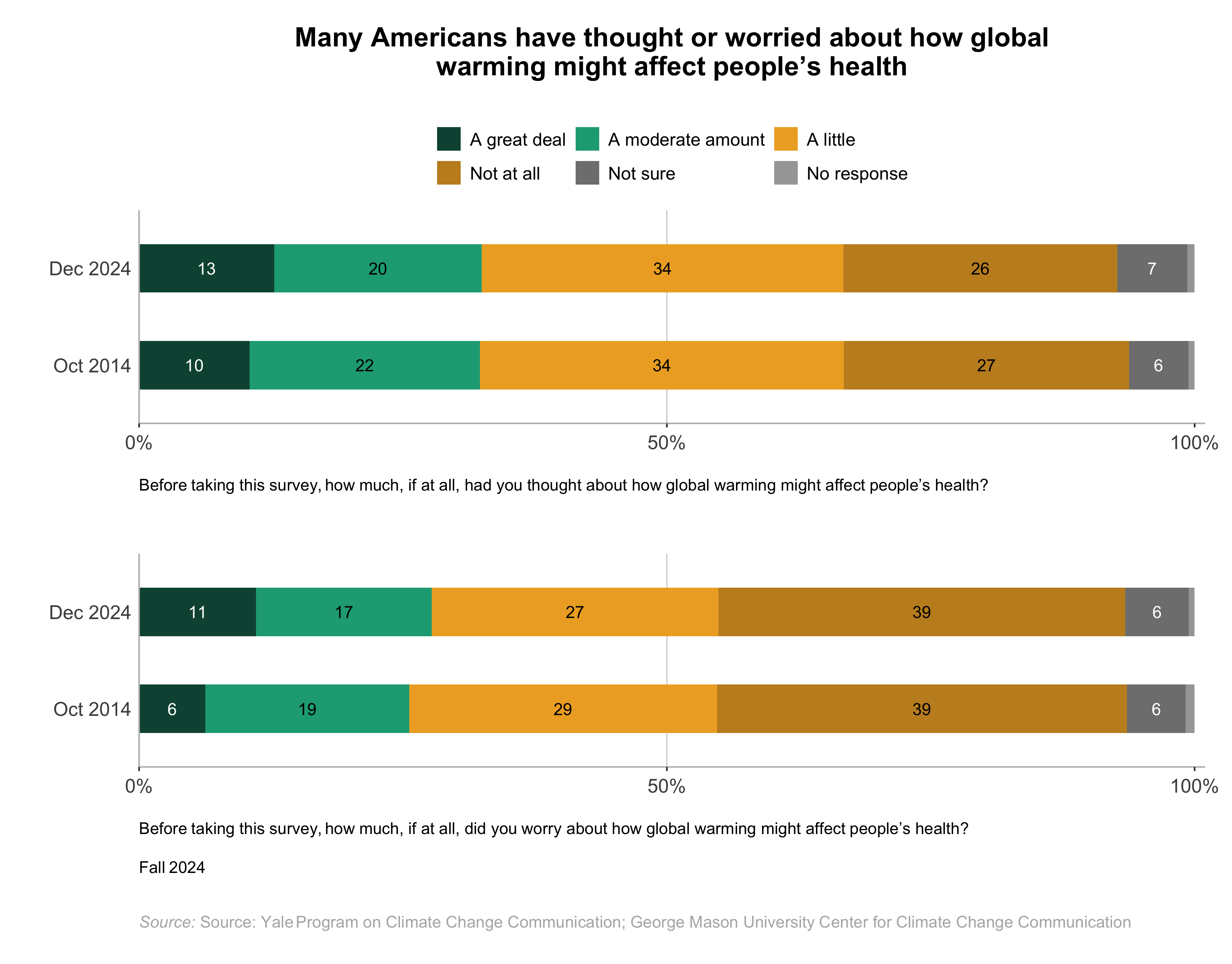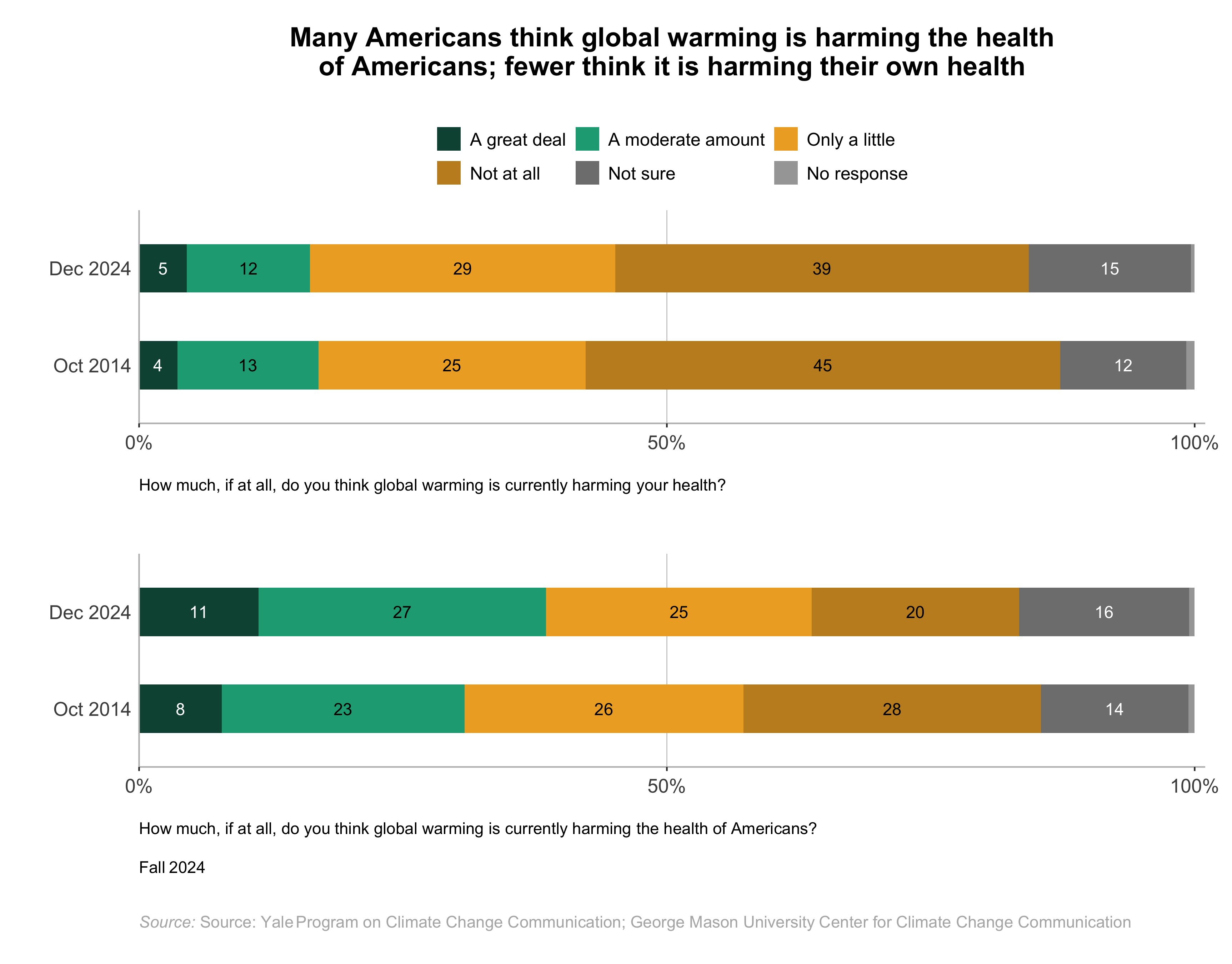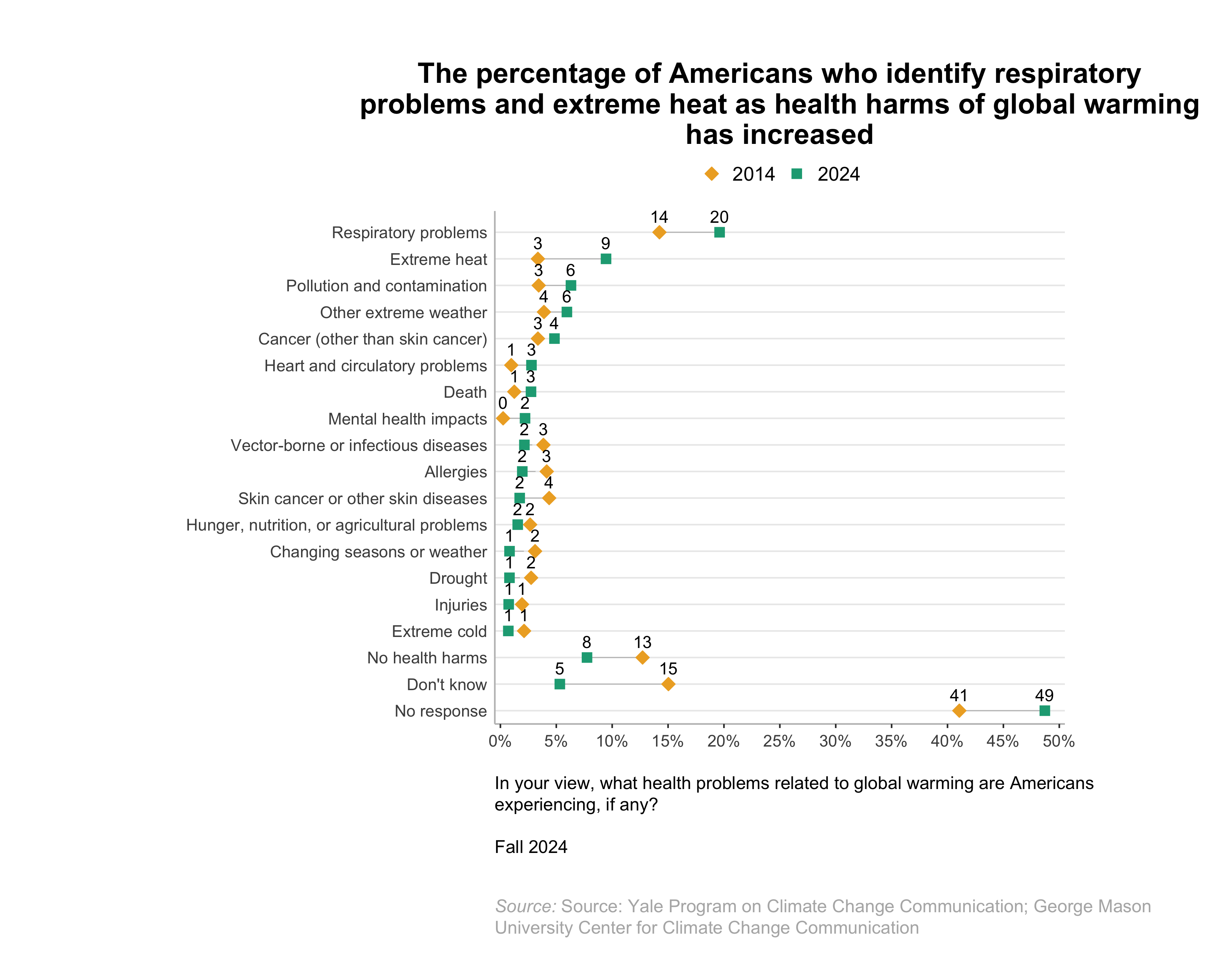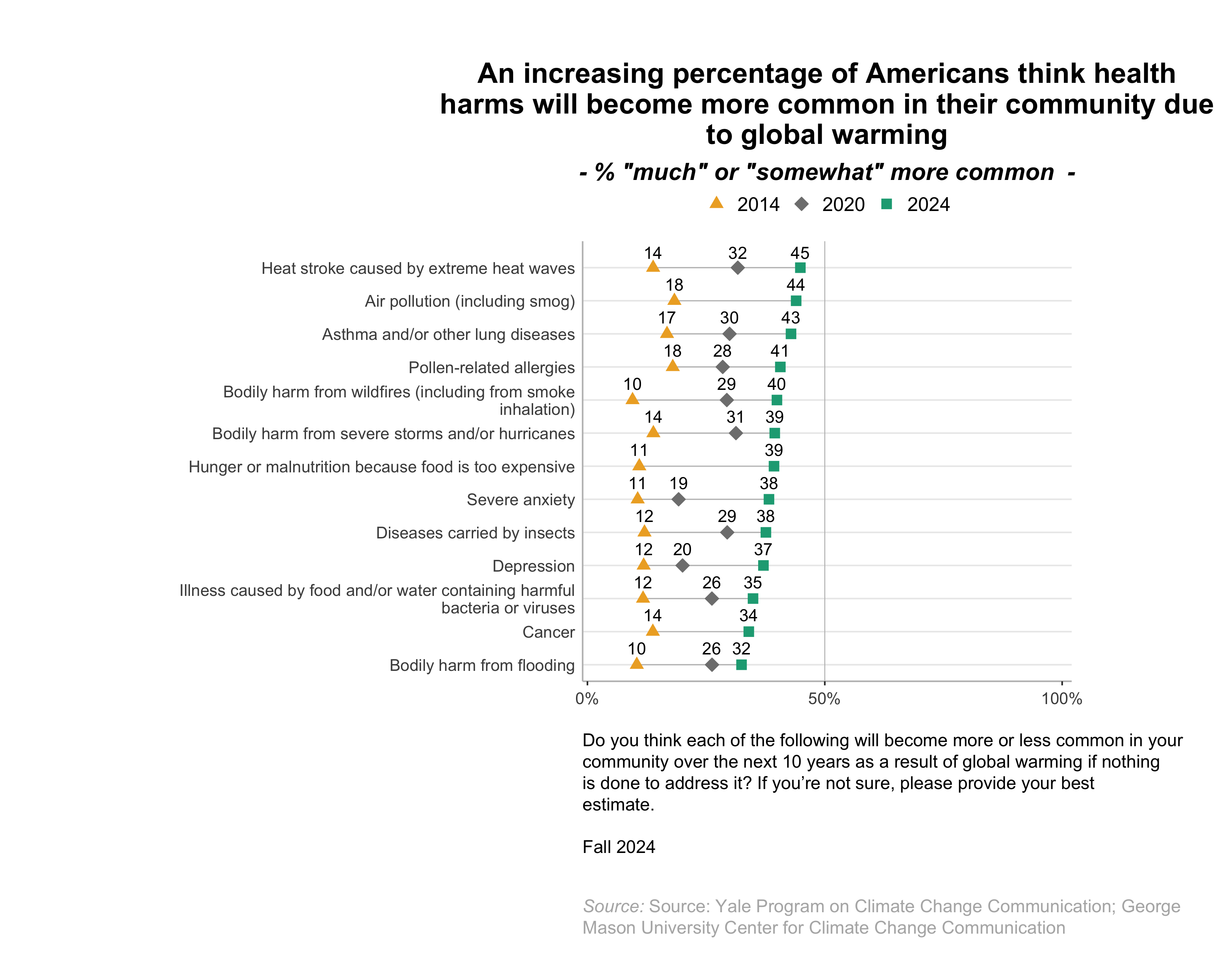Report · Feb 28, 2025
Climate Change in the American Mind: Public Perceptions of the Health Harms of Global Warming, Fall 2024
By Julia Fine, Joshua Ettinger, Emily Goddard, John Kotcher, Hilyatuz Zakiyyah, Yuan Yue, Jennifer Carman, Seth Rosenthal, Kathryn Thier, Teresa Myers, Marija Verner, Jennifer Marlon, Emily Richards, Matthew Goldberg, Anthony Leiserowitz and Edward Maibach
Filed under: Climate Impacts and Beliefs & Attitudes
1. Beliefs About the Health Harms of Global Warming
1.1 Many Americans have thought or worried about how global warming might affect people’s health.
About one-third of Americans (32%) say that, before taking the survey, they have thought either a “great deal” or “moderate amount” about the health harms of global warming.
Similarly, 28% of Americans say that before taking the survey, they have worried either a “great deal” or “moderate amount” about how global warming might affect their health. The percentage who say they have worried “a great deal” about the health harms of global warming has increased by five percentage points (from 6% to 11%) since the last time this question was asked in 2014.
1.2 Many Americans think global warming is harming the health of Americans; fewer think it is harming their own health.
About four in ten Americans (39%) think global warming is currently harming the health of Americans either a “great deal” or “moderate amount” (an increase of 8 percentage points since 2014). Fewer (16%) think global warming is currently harming their own health either a “great deal” or “moderate amount.”
1.3 The percentage of Americans who identify respiratory problems and extreme heat as health harms of global warming has increased.
All survey participants were asked an open-ended question: “In your view, what health problems related to global warming are Americans experiencing, if any?” Responses were then categorized for analysis (refer to data tables, p. 15; for descriptions of all categories, refer to pp. 28-29).
Approximately four in ten Americans (37%) identify at least one health problem linked to global warming (+5 points since 2014). One in five (20%) identify respiratory problems (an increase of 5 percentage points), and about one in ten (9%) mention extreme heat (+6 percentage points). Other health problems commonly mentioned include pollution or contamination of air, water, soil, and food (6%, +3 points) and extreme weather events (other than extreme heat or cold), such as wildfires, storms, and floods (6%, +2 points).
Half of survey participants (49%) did not provide a response to this question (+8 points), while 8% said there are no health harms (-5 points), and 5% said they don’t know if there are any health harms (-10 points).
1.4 An increasing percentage of Americans think health harms will become more common in their community due to global warming.
An increasing percentage of Americans think many health harms will become “much more” or “somewhat more” common in their community over the next ten years as a result of global warming if nothing is done to address it. Currently, the health harms most anticipated to become more common include heat stroke (45%, +31 percentage points since 2014), air pollution (44%, +26 points), asthma and/or other lung diseases (43%, +26 points), and pollen-related allergies (41%, +23 points).
Additionally, many Americans think bodily harm from wildfires (including from smoke inhalation; 40%, +30 points), bodily harm from severe storms and/or hurricanes (39%, +26 points), hunger or malnutrition because food is too expensive (39%, +28 points), severe anxiety (38%, +28 points), diseases carried by insects (38%, +26 points), depression (37%, +25 points), illness caused by food and/or water containing harmful bacteria or viruses (35%, +23 points), cancer (34%, +20 points), and bodily harm from flooding (32%, +22 points) will become more common.



